Description
ABSTRACT
An Overview of the Nature of Security Interest of a Charge under Nigerian Law
Oluwaseun V Ojo*
Security is central to debt financing arrangement between parties as it seeks to find a balance amongst the commercial interests of both parties. On the part of the lenders, it gives a sense of assurance of repayment of the loans and, on the part of the borrowers, availability of security guarantees unlimited access to credit facilities. Of all the common security interests typically taken by lenders in corporate financings, Charge is the most popular and is often utilised both in simple and complex commercial and secured lending transactions in Nigeria. This article begins with a brief examination of the purpose of and the different types of security, the nature and extent of interest created under a charge as well as the relevant statutory requirements for perfection of a charge. It further narrows down the discussion to a floating charge, and argues that the peculiar nature of the floating charge confers on the chargor the right to dispose of or assign the assets subject of a floating charge to a third party without the prior consent or authority of the chargee notwithstanding the subsistence of the charge. It further posits that such right vested on the chargor is akin to the untested label of an interest best described as a residual interim legal interest as such label accords with the underlying commercial philosophy behind the utility of a floating charge.
Keywords: Security, Debt Financing, Corporate Financing, Charge, Floating Charge.
INTRODUCTION
The comfort and assurance of repayment of credit facilities advanced by lenders to borrowers within a prescribed timeframe necessitates the taking of security by the lenders over the assets (tangible and intangible) of the borrowers. This remains the oft-quoted rationale even in traditional financing as commercial banks, mortgage banks, development financial institutions (DFIs) or any other lending/financial institutions take security in order to mitigate their exposure to any risk of default, delay in repayment or non-payment of credit facilities advanced to the borrowers. In addition, in the event of borrower’s insolvency, they might enjoy the statutory protection ordinarily accorded the secured creditors (as against the unsecured creditors). To achieve the foregoing, both parties (creditors and borrowers) in a standard facility documentation, through their respective expert knowledge and with the assistance of external/internal counsel – would carefully draft, negotiate and execute the Facility Agreement1 which typically sets out the terms and conditions of the loan/debt arrangement between the parties, coupled with a number of security documents, largely dependent on the preferred financing structure. Depending on the nature of the security in corporate financing, the security document may be a Security Deed, Corporate or Personal Guarantee, Deed of Share Charge, All Assets Debenture, Licence Charge, and Assignment of Insurances.
* LL.B, BL. Associate, Olaniwun Ajayi LP, Lagos Nigeria.
- 33 1. Otherwise referred to as Loan Agreement in certain contexts.

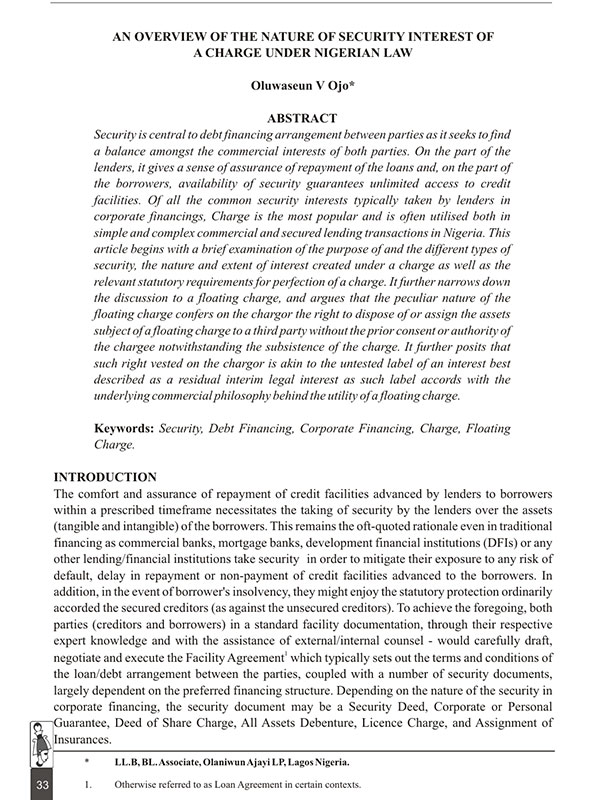
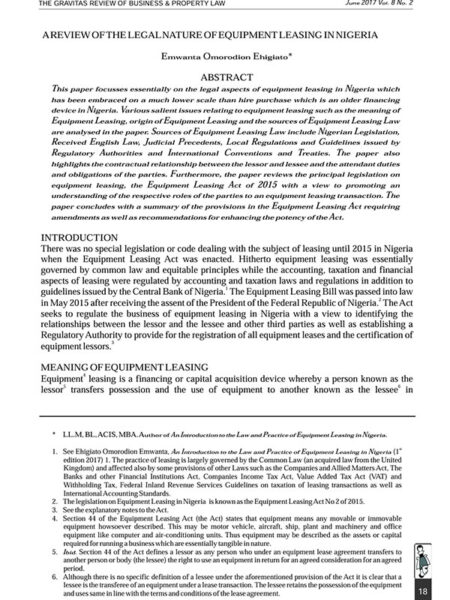
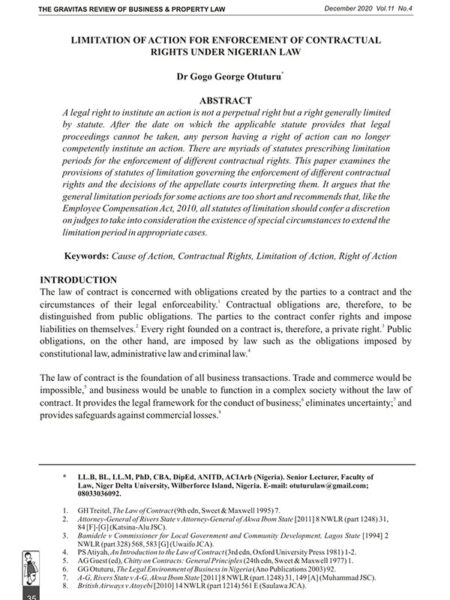
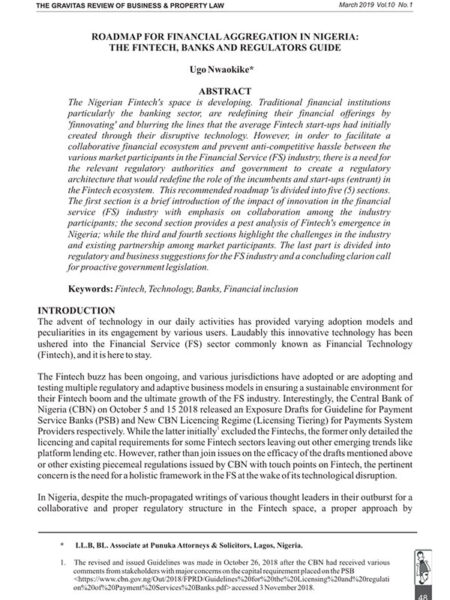
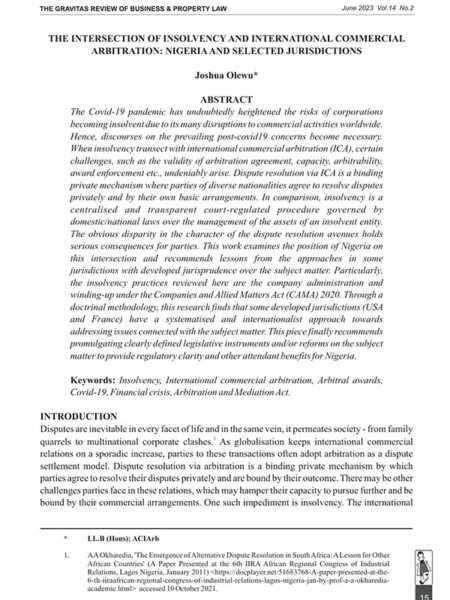


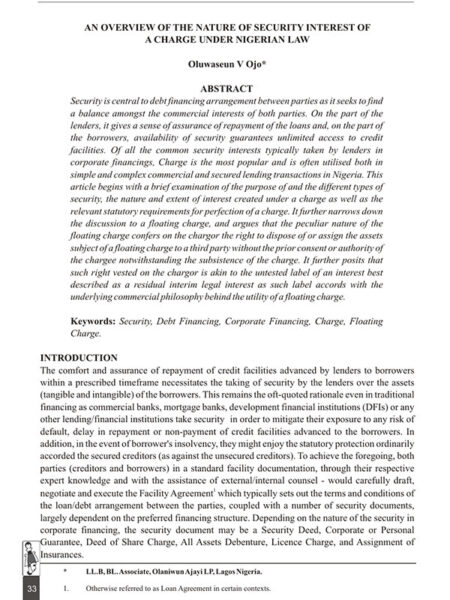
Reviews
There are no reviews yet.